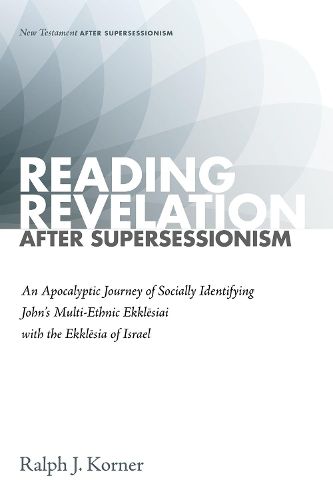Readings Newsletter
Become a Readings Member to make your shopping experience even easier.
Sign in or sign up for free!
You’re not far away from qualifying for FREE standard shipping within Australia
You’ve qualified for FREE standard shipping within Australia
The cart is loading…






This title is printed to order. This book may have been self-published. If so, we cannot guarantee the quality of the content. In the main most books will have gone through the editing process however some may not. We therefore suggest that you be aware of this before ordering this book. If in doubt check either the author or publisher’s details as we are unable to accept any returns unless they are faulty. Please contact us if you have any questions.
In this volume, Ralph Korner argues that John’s extensive social identification with Judaism(s), Jewishness, and Jewish institutions does not reflect a literary program of replacing Israel with the ekklesiai (churches/assemblies), that is the Jewish and non-Jewish followers of Jesus as Israel’s Messiah. Rather, John is emplacing his Christ-followers further within Israel, without thereby superseding Israel as a national identity for ethnic Jews who do not follow Jesus as the Christos. There are three primary roads travelled in this investigative journey. First, Korner explores ways in which a Jewish heritage is intrinsic to the literary structure, genre, eschatology, symbolism, and theological motifs of the Apocalypse. Second, he challenges the linear chronology of (generally) supersessionist dispensational readings of Revelation’s visionary content by arguing for a reiterative/repetitive structure based on certain literary devices that also provide structure for visions within Jewish apocalypses and Hebrew prophecies. Third, he incorporates the most recent research on ekklesia usage, especially in Asia Minor, to assess how John’s ekklesia associations might have been (non-supersessionally) perceived, especially by Jews in Roman Asia.
$9.00 standard shipping within Australia
FREE standard shipping within Australia for orders over $100.00
Express & International shipping calculated at checkout
This title is printed to order. This book may have been self-published. If so, we cannot guarantee the quality of the content. In the main most books will have gone through the editing process however some may not. We therefore suggest that you be aware of this before ordering this book. If in doubt check either the author or publisher’s details as we are unable to accept any returns unless they are faulty. Please contact us if you have any questions.
In this volume, Ralph Korner argues that John’s extensive social identification with Judaism(s), Jewishness, and Jewish institutions does not reflect a literary program of replacing Israel with the ekklesiai (churches/assemblies), that is the Jewish and non-Jewish followers of Jesus as Israel’s Messiah. Rather, John is emplacing his Christ-followers further within Israel, without thereby superseding Israel as a national identity for ethnic Jews who do not follow Jesus as the Christos. There are three primary roads travelled in this investigative journey. First, Korner explores ways in which a Jewish heritage is intrinsic to the literary structure, genre, eschatology, symbolism, and theological motifs of the Apocalypse. Second, he challenges the linear chronology of (generally) supersessionist dispensational readings of Revelation’s visionary content by arguing for a reiterative/repetitive structure based on certain literary devices that also provide structure for visions within Jewish apocalypses and Hebrew prophecies. Third, he incorporates the most recent research on ekklesia usage, especially in Asia Minor, to assess how John’s ekklesia associations might have been (non-supersessionally) perceived, especially by Jews in Roman Asia.